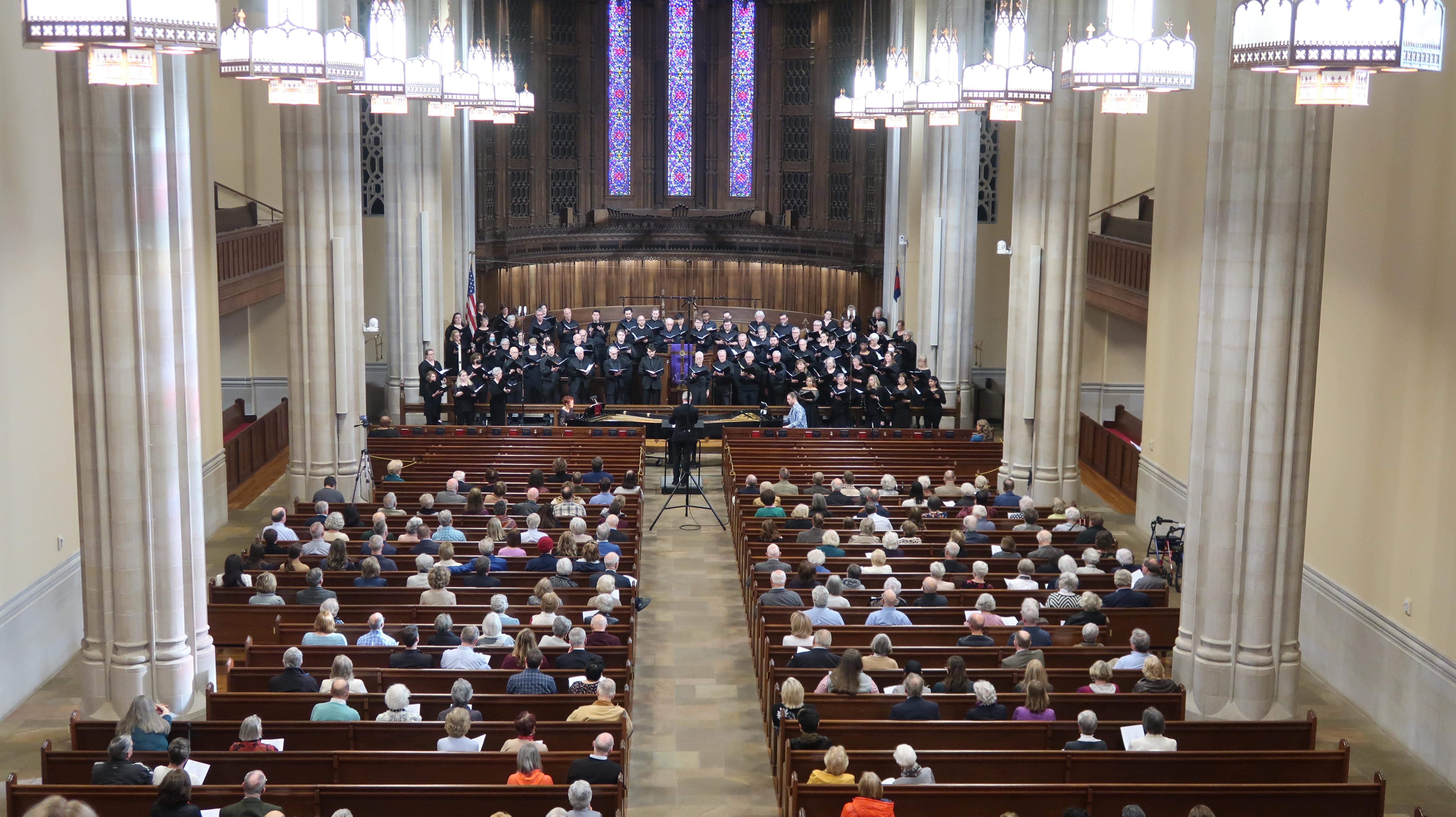
1 minute read
Reflections on Brahms
Brahms’ A German Requiem was the first larger choral work I remember hearing other than Handel’s Messiah.
Worship at a Glance
March 5: Children’s Choirs & Communion





March 19: Carillonneurs
March 26: Winston-Salem Girls Chorus










I have sung the Brahms several times and have found each experience both different and the same. Each time, there have been different singers, instrumentalists, conductors, and physical settings. But it is always the same universal message enhanced by uncommonly beautiful music. There is, as I experience the work, an invitation to a glimpse of the eternal that cannot be expressed in words.
In every presentation I have been part of, the majesty of the music comes hand-in-hand with a myriad of practical concerns: Who will conduct? Will the soloists be outstanding? How many rehearsals will we have? Where will the program be given? (It is one of those religious works that is equally at home in a sanctuary and a concert hall.)
When Jonathan offered members of our Chancel Choir the opportunity to sing this work again, I contemplated for perhaps three or four seconds before knowing I wanted to do it. Then I realized I have always sung this in English. Based on Brahms’ own notes, there are good arguments for doing it in the language of the audience. There are also good arguments for doing it in the language in which it was composed. In any case, I had to learn it in German, which turned out to be tougher than I expected.
Getting to sing this towering work in a choir of long-time friends and new acquaintances in the magnificent new Tanger Center and also in my home church were experiences for which I am beyond grateful.






- Joel Stegall



